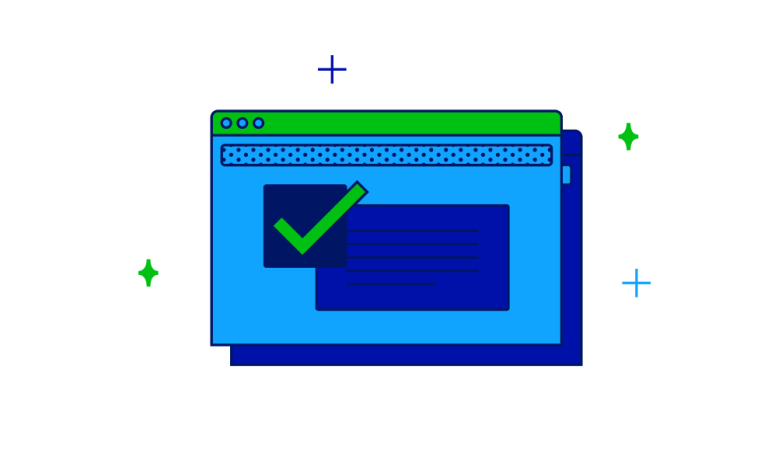Accreditation
Minnesota North College is accredited by the Higher Learning Commission, an institutional accreditor recognized by the U.S. Department of Education.
The Higher Learning Commission (HLC) is an institutional accreditation agency that accredits degree-granting colleges and universities that are based in the United States.
Institutional accreditation validates the quality of an institution as a whole and evaluates multiple aspects of an institution, including its academic offerings, governance and administration, mission, finances, and resources. HLC’s accreditation includes all degree levels as well as onsite and online course delivery. Institutions of higher education in the United States may also seek accreditation through specialized or programmatic accreditation agencies, which accredit programs, departments or schools within a college or university.
Institutions that HLC accredits are evaluated against its Criteria for Accreditation, a set of standards that institutions must meet to receive and/or maintain accredited status. HLC’s Criteria for Accreditation reflect a set of Guiding Values.
The accreditation process is based on a system of peer review. Approximately 2,000 educators from institutions of higher education serve as HLC peer reviewers conducting accreditation evaluations for other institutions. They make recommendations to HLC’s decision-making bodies, which take final action on institutional evaluations and are made up of both peer reviewers and public members.
Minnesota North College is a member of NC-SARA (National Council for State Authorization Reciprocity Agreements), which means we share a reciprocity agreement with all states who are part of the NC-SARA group. The State Authorization Reciprocity Agreement is an agreement among member states, districts and territories that establishes comparable national standards for interstate offering of postsecondary distance education courses and programs. It is intended to make it easier for students to take online courses offered by postsecondary institutions based in another state. SARA is overseen by a National Council and administered by four regional education compacts.
To find out if you live in a state that has joined this consortium, view the NC-SARA map. If you don’t see your state listed as NC-SARA approved, fear not. More states are coming on board quickly, and soon we anticipate that most states will be participating.
Minnesota North College has been approved to participate in the National Council for State Authorization Reciprocity Agreements.
Student Consumer Complaint Process
Pursuant to the United States Department of Education’s Program Integrity Rule, institutions providing online education are required to provide all prospective and current students contact information of the state agency or agencies that handle complaints against postsecondary education institutions offering distance learning within that state.
We encourage you to seek resolution to any concerns by discussing them informally with a staff member at the College. If a complaint cannot be handled informally, Minnesota North students are encouraged to use our College’s complaint process, outlined in the Student Complaint Form.
If a complaint cannot be resolved at the College level, you may contact the Minnesota Office of Higher Education if you are a distance education student that resides out of state and in an NC-SARA state. Otherwise, if you do not meet the previously mentioned criterion, you may contact your local state agency (pdf) for further information.
Licensure Disclosures
Below are a list of Minnesota North programs that customarily lead to licensure. Please click on the link of the PDF for the initial licensure document. This document will indicate one of the three options: the program does meet licensure, the program does not meet licensure, or a determination cannot be made as to whether the program leads to licensure. For these purposes, states include the District of Columbia and the US protectorates, as defined in 34 CFR 668.43 (a) (5) (v).
Addiction Studies: Board of Behavioral Health and Therapy
Automotive Technician: Automotive Service Excellence (ASE)
Certified Nursing Assistant: Minnesota Department of Health
Concurrent Enrollment: National Alliance of Concurrent Enrollment Partnerships (NACEP)
Construction Management: National Center of Construction Education and Research (NCCER)
Dental Assistant: Commission on Dental Accreditation (CODA)
Diesel Mechanics & Heavy Equipment: Associated Equipment Distributors (AED)
Early Childhood: Minnesota Board of Teaching (pending)
Electrical Maintenance & Construction: Minnesota Department of Labor and Industry
Graphic Design & Visual Communications: Printing and Graphics Association Mid Atlantic (PGAMA)/ Print [Ed]
Peace Officer Education: Minnesota Peace Officers Standards & Training Board (POST)
Medical Laboratory Technician: National Accreditation Agency for Clinical Laboratory Sciences (NAACLS)
Natural Resources: Society of American Foresters (SAF)
Natural Resource Technology, Forestry Wildlife and Wildlife Degree
Ecology Certificate: North American Wildlife Technology Association (NAWTA)
Nursing, AD: Accreditation Commission for Education in Nursing (ACEN)
Nursing, Practical: National League for Nursing Commission for Nursing Education Accreditation (NLN CNEA)
Paramedic: Committee on Accreditation of Educational Programs for the
Emergency Medical Services Professions (CoAEMPS)/
Commission on Accreditation of Allied Health Education Programs (CAAHEP)
Veterinary Technician: American Veterinary Medical Association Committee on Veterinary Technician Education and Activities (AVMA CVTEA)
Welding: American Welding Society (AWS)
Wildland/Wildlife Law Enforcement and Criminal Justice-Police Science
Programs, with the Park Ranger Law Enforcement Academy (PRLEA): Minnesota Peace Officers Standards & Training Board (POST)






